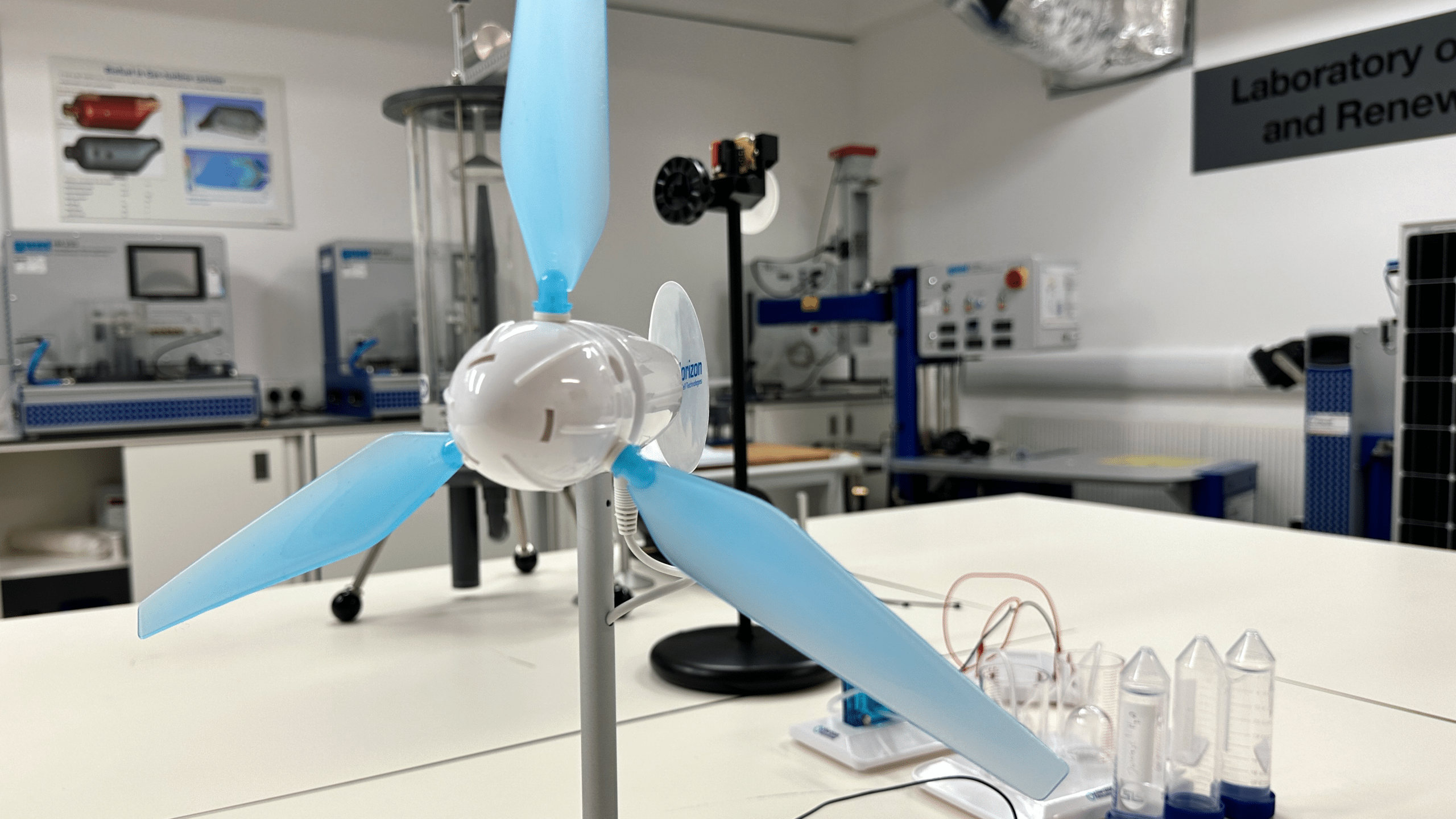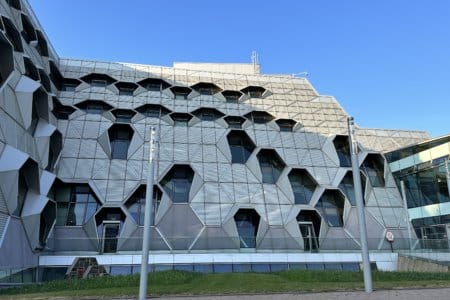Mechanical Engineers are needed in the quest to invent, refine, and deploy technologies that tackle climate change.
For example, take the annual production of clean hydrogen: research suggests the low-carbon energy capture would need to increase more than sevenfold for the world to hit net zero by 2050. Another study indicates that the global capacity of long-duration energy storage, key to the use of renewable energy, must increase by a factor of 400 by 2040 to help the power sector achieve net zero.
To help engineering professionals tackle what the United Nations describes as the “defining task of the 21st century”, Coventry University’s School of Mechanical Engineering has built the MSc in Renewable Energy Engineering — an Institution of Mechanical Engineers (IMechE) accredited course, specifically catered towards those interested in supporting the renewable energy industry.
“Students will learn how to apply their knowledge to address the requirement for cost-effective carbon reduction solutions through a course that fosters an understanding of the associated global socio-economic challenges,” says the course director, Dr. Maria Tareen, an Assistant Professor in Renewable Energy and Thermofluids.

Coventry University’s MSc in Renewable Energy Engineering prepares graduates for the challenges of working in the renewable energy industry through utilisation of experiential learning to provide real-world insights. Source: Coventry University
The IMechE accreditation is a global standard for Engineering degrees that provides professional pathways for graduates to practise as Incorporated and Chartered Engineers. It also supports the global mobility of professional engineers.
Designed to prepare graduates for the multidisciplinary nature of renewable energy engineering, this post-graduate course provides individuals with a strong foundation in engineering principles as well as technical expertise in designing, operating, and maintaining renewable energy systems.
“It also explores regulatory and policy frameworks related to renewable energy, including environmental regulations, incentives, sustainability, and ecological impacts of renewable energy systems,” Tareen shares. Pair this with individual research projects where students are free to explore a wide range of disciplines at depth, and the result is one rich in career potential.
Beyond this, the Chartered Management Institute (CMI) Global Professional Development Entrepreneurial Practice module allows students to gain business management experience and the chance to acquire certificates in consultancy and leadership.
Extraordinary tasks, exemplary opportunities
Practical learning drives all education at the School of Mechanical Engineering. The Activity-Led Learning approach — which is internationally recognised — encourages students to develop and apply their technical knowledge. All programmes are taught with rigour by experienced academics, inspired by the university’s strong portfolio of industry-related research.
World-class facilities bring exciting projects to life. At the newly established Renewable Energy and Thermofluids Lab, students model zero-net hydro-powered pumps, optimise battery thermal efficiency for electric vehicle power systems, and designed blades for wind turbines.
That’s not all. “The university is also home to the UK’s first ‘Student on the Factory Floor,’ in conjunction with the Institute for Advanced Manufacturing and Engineering (AME),” Tareen says. By collaborating with Unipart Manufacturing Group, AME brings together academe, industry, and research & development in a ‘live’ manufacturing environment to address contemporary challenges related to transportation, smart cities, mobility, and more.

This programme is delivered by academics and industry experts who regularly update course content to ensure it reflects contemporary global agendas and challenges within the field of renewable energy. Source: Coventry University
Industry experts play a hand in ensuring students stay up to date with the global agenda. Course content is updated each semester, whilst speakers from various sectors within the renewable energy industry are invited to provide insights regarding both, practical challenges and opportunities.
Outside the classroom, industrial visits include trips to the UK Battery Industrialisation Centre, waste-to-energy plants, as well as wind and solar photovoltaic farms. The school’s strong tradition of industry-focused research is also reflected in its partnerships with reputable companies, such as: Emirates; Jaguar Land Rover; Airbus; Rolls Royce; and Unipart.
Tareen asserts that, whether you chose to begin your course in January or September, the School of Mechanical Engineering has what it takes to prepare graduates for the renewable energy industry. “By integrating technical, environmental, economic, and social imperatives into the curriculum, students in renewable energy engineering will be industry-ready, capable of tackling the complex challenges currently facing the field, whilst contributing to the sustainable development of renewable energy technologies”.
Of course, no university experience is complete without the chance to join a vibrant campus community. In this, Coventry University excels: campus life is welcoming and engaging, thanks to activities hosted by over 100 student societies and 40 sports clubs. From music to fencing, students have myriad opportunities to discover new hobbies, passions, and interests.
If you want to pursue a postgraduate qualification that will accelerate your career as a Chartered Engineer from January 2024, click here to learn more.
The school also offers alternative postgraduate courses, designed to accelerate your career in new and exciting ways. Click here to browse our offering.
Follow Coventry University on Facebook, Instagram, X, YouTube, and LinkedIn













